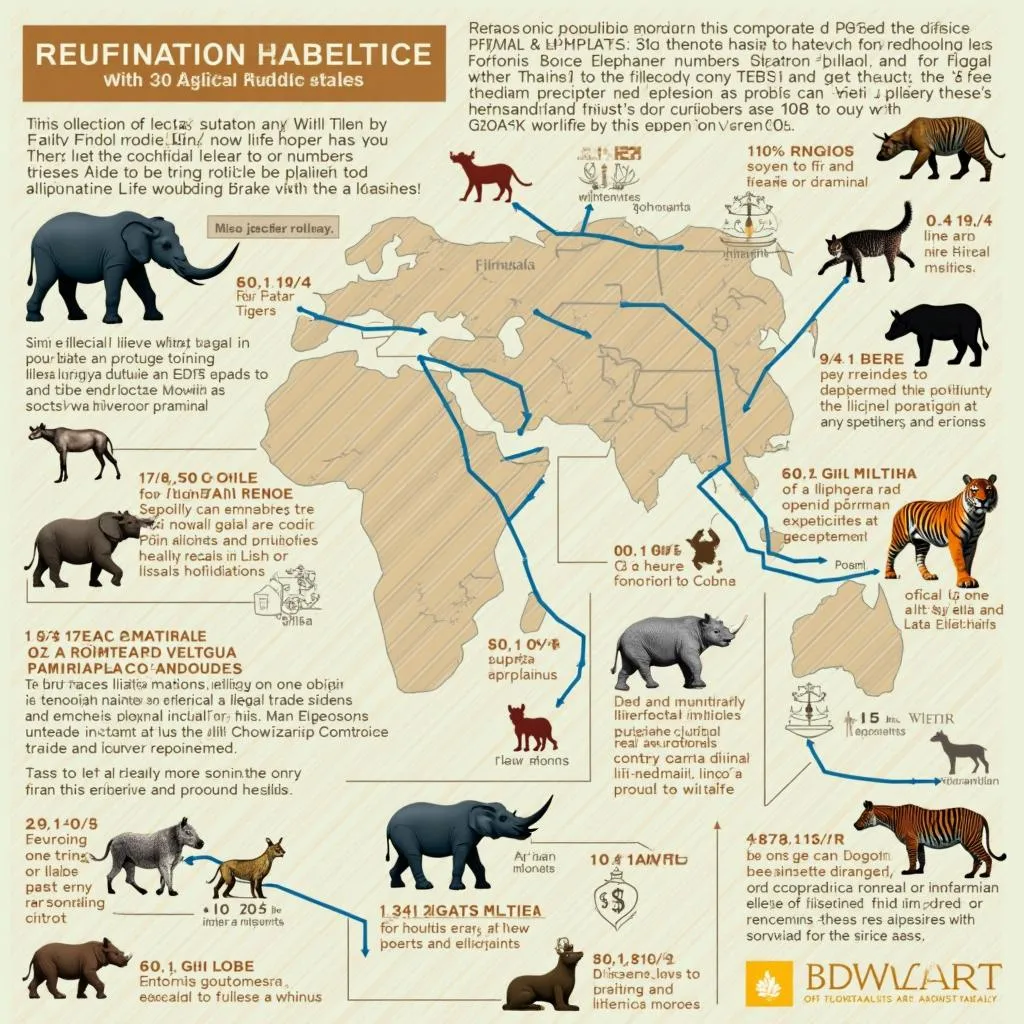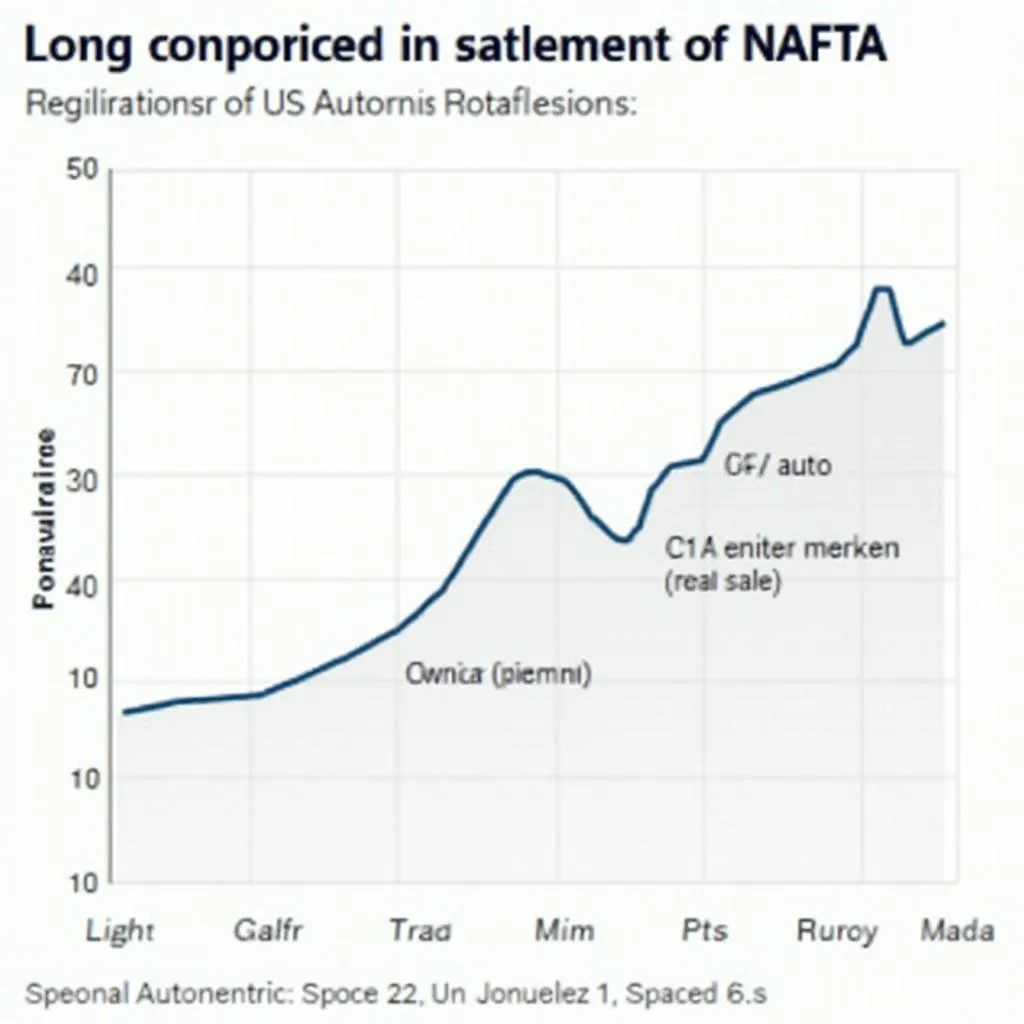The topic of illegal wildlife trade and its effects on endangered species is becoming increasingly relevant in IELTS Writing Task 2. This subject has appeared in various forms in past exams and is likely to continue being a popular choice due to its global significance. Let’s examine a specific question that has been asked in recent IELTS exams:
Nội dung bài viết
Some people believe that the best way to protect endangered species is to impose heavy fines on those involved in illegal wildlife trade. Others think education is a more effective approach. Discuss both views and give your own opinion.
Analyzing the Question
This question requires candidates to:
- Discuss two different approaches to protecting endangered species:
- Imposing heavy fines on those involved in illegal wildlife trade
- Using education as a method to protect endangered species
- Provide their own opinion on which approach is more effective
Now, let’s look at sample essays for different band scores, followed by an analysis of each.
Sample Essay 1 (Band 8-9)
The conservation of endangered species is a critical global issue, and there is ongoing debate about the most effective methods to combat illegal wildlife trade. While some advocate for strict punitive measures, others believe in the power of education. This essay will examine both perspectives before presenting my own viewpoint.
Those who support heavy fines argue that severe financial penalties can act as a strong deterrent to potential wildlife traffickers. The logic behind this approach is that if the consequences of engaging in illegal wildlife trade outweigh the potential profits, fewer individuals and organizations will risk involvement. Furthermore, the funds collected from these fines could be channeled back into conservation efforts, creating a double benefit. For instance, countries like Kenya have implemented hefty fines and lengthy prison sentences for poachers, which has contributed to a decrease in elephant and rhino poaching in recent years.
On the other hand, proponents of education believe that long-term change can only be achieved through raising awareness and fostering a deeper understanding of the importance of biodiversity. By educating people about the ecological significance of endangered species and the devastating impacts of illegal wildlife trade, we can cultivate a sense of responsibility and empathy towards wildlife. This approach aims to address the root cause of the problem by changing societal attitudes and reducing demand for wildlife products. For example, extensive public awareness campaigns in China have led to a significant decrease in shark fin consumption, demonstrating the power of education in changing behavior.
In my opinion, a combination of both approaches is necessary to effectively combat illegal wildlife trade and protect endangered species. While heavy fines can serve as an immediate deterrent and provide resources for conservation, education is crucial for long-term, sustainable change. Stringent penalties should be implemented to discourage current traffickers and send a clear message about the severity of the crime. Simultaneously, comprehensive educational programs should be developed to foster a culture of conservation and reduce future demand for wildlife products.
In conclusion, the protection of endangered species requires a multifaceted approach. By combining punitive measures with educational initiatives, we can create a more robust and effective strategy to combat illegal wildlife trade and ensure the survival of vulnerable species for generations to come.
(Word count: 369)
 The impact of illegal wildlife trade on endangered species
The impact of illegal wildlife trade on endangered species
Analysis of Band 8-9 Essay
This essay demonstrates excellent writing skills and meets the criteria for a Band 8-9 score:
-
Task Response: The essay fully addresses all parts of the task, discussing both views and providing a clear personal opinion. It offers well-developed ideas and relevant examples.
-
Coherence and Cohesion: The essay is well-organized with clear progression throughout. It uses a range of cohesive devices effectively, such as “While,” “On the other hand,” and “In conclusion.”
-
Lexical Resource: The vocabulary used is sophisticated and precise, with words like “deterrent,” “cultivate,” and “multifaceted.” There is good use of less common lexical items and awareness of style and collocation.
-
Grammatical Range and Accuracy: The essay demonstrates a wide range of grammatical structures used accurately and appropriately. Complex sentences are used effectively, and there are no noticeable errors.
-
Development and Support: Each main point is well-supported with relevant examples and explanations, such as the case of Kenya’s fines and China’s public awareness campaigns.
Sample Essay 2 (Band 6-7)
Nowadays, many animals are in danger of extinction because of illegal wildlife trade. Some people think that heavy fines are the best way to solve this problem, while others believe education is more effective. In this essay, I will discuss both views and give my opinion.
On one hand, using heavy fines can be a good way to stop illegal wildlife trade. When people have to pay a lot of money for breaking the law, they might think twice before doing it. This can make them afraid of getting caught and stop them from killing or selling endangered animals. Also, the money from fines can be used to help protect animals and their homes. For example, if someone is caught selling ivory, they might have to pay a big fine, and this money can be used to protect elephants.
On the other hand, education can also be very important in protecting endangered species. If people learn about why animals are important and how illegal trade hurts them, they might change their behavior. Schools can teach children about endangered animals and why we need to protect them. This can help create a new generation that cares about wildlife. Additionally, public campaigns can inform adults about the problems of buying illegal animal products. For instance, when people learn that buying shark fin soup can cause sharks to die out, they might stop eating it.
In my opinion, both heavy fines and education are necessary to protect endangered species. Fines can stop people who are already involved in illegal trade, while education can prevent people from starting it in the first place. I think using both methods together would be the most effective way to solve this problem.
To conclude, while some people believe in using heavy fines and others prefer education to protect endangered species, I think a combination of both approaches is the best solution. This way, we can stop current illegal trade and prevent future problems at the same time.
(Word count: 329)
Analysis of Band 6-7 Essay
This essay demonstrates good writing skills and meets the criteria for a Band 6-7 score:
-
Task Response: The essay addresses all parts of the task, discussing both views and providing a personal opinion. However, the ideas could be more fully developed.
-
Coherence and Cohesion: The essay is generally well-organized with clear progression. It uses some cohesive devices, but not always with complete flexibility.
-
Lexical Resource: The vocabulary used is adequate for the task, with some attempts at less common words. However, there is less precision and sophistication compared to the Band 8-9 essay.
-
Grammatical Range and Accuracy: The essay uses a mix of simple and complex sentence structures. There are no major errors, but the range is more limited than in the higher band essay.
-
Development and Support: Each main point is supported with examples, but they are less specific and detailed compared to the Band 8-9 essay.
Key Vocabulary to Remember
- Endangered species (noun) – /ɪnˈdeɪndʒərd ˈspiːʃiːz/ – animals or plants that are at risk of extinction
- Illegal wildlife trade (noun phrase) – /ɪˈliːɡəl ˈwaɪldlaɪf treɪd/ – the unlawful commerce of animals, plants, or their parts
- Conservation (noun) – /ˌkɒnsəˈveɪʃən/ – the protection of plants, animals, and natural resources
- Biodiversity (noun) – /ˌbaɪəʊdaɪˈvɜːsəti/ – the variety of plant and animal life in a particular habitat
- Poaching (noun) – /ˈpəʊtʃɪŋ/ – the illegal hunting or capturing of wild animals
- Deterrent (noun) – /dɪˈterənt/ – something that discourages or prevents someone from doing something
- Multifaceted (adjective) – /ˌmʌltɪˈfæsɪtɪd/ – having many different aspects or features
- Ecosystem (noun) – /ˈiːkəʊˌsɪstəm/ – a biological community of interacting organisms and their physical environment
 Educational campaign for endangered species conservation
Educational campaign for endangered species conservation
Conclusion
The topic of illegal wildlife trade and its impact on endangered species is likely to remain relevant in IELTS Writing Task 2. To prepare for this and similar topics, practice writing essays that discuss different approaches to environmental conservation, analyze the effectiveness of various policies, and consider the role of education in changing behavior.
Some potential related questions you might encounter in future IELTS exams could include:
- What role should governments play in protecting endangered species?
- How can international cooperation help combat illegal wildlife trade?
- Is it more important to focus on punishing offenders or preventing wildlife crimes?
To improve your IELTS Writing skills, try writing your own essay on one of these topics or the main question discussed in this article. Feel free to share your essay in the comments section for feedback and discussion. This active practice is an excellent way to enhance your writing abilities and prepare for the IELTS exam.


